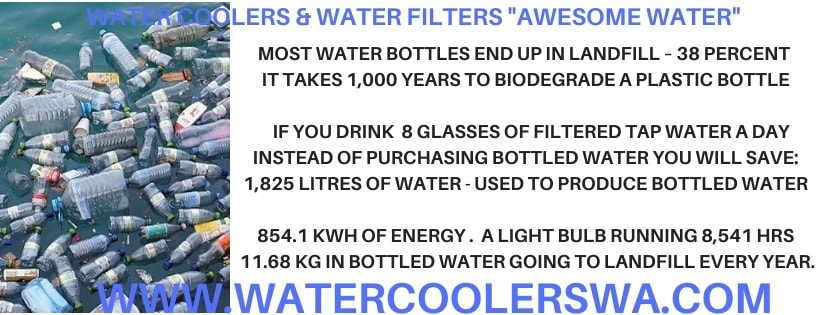Can You Say No to Bottled Water?
“PET bottles made water mobile and portable… terms like ‘mountain springs’
and ‘all natural’ worked to implicitly devalue [tap] water… while marketing
turned having a drink of water into ‘daily hydration requirements’,
these were some of key processes that turned water into a commodity
Associate Professor Race notes that corporations had to engage in
“ethical branding” practices to find ways of making the purchase of bottled
water seem okay because it became a controversial object from the 1990s.
Examples include the pink-capped bottle that Mount Franklin produced during Breast Cancer Awareness Month and Thirst Aid Water which promised that a proportion of proceeds would be directed to clean water projects in Africa and Asia.
“There are many aspects of bottled water – its manufacture and impacts
that seem to disappear at the point of purchase,
and this is all the more likely to be the case when the industry
manages to create associations between the brand
and ‘progressive’ social causes,” he said.
Associate Professor Race adds that bottled water has provoked
a “plethora of environmental and ethical issues” from massive increases
in plastics waste to giving corporations
access to water sources that are not adequately protected from
gross exploitation, to undermining trust in public water supplies.
and ‘all natural’ worked to implicitly devalue [tap] water… while marketing
turned having a drink of water into ‘daily hydration requirements’,
these were some of key processes that turned water into a commodity
Associate Professor Race notes that corporations had to engage in
“ethical branding” practices to find ways of making the purchase of bottled
water seem okay because it became a controversial object from the 1990s.
Examples include the pink-capped bottle that Mount Franklin produced during Breast Cancer Awareness Month and Thirst Aid Water which promised that a proportion of proceeds would be directed to clean water projects in Africa and Asia.
“There are many aspects of bottled water – its manufacture and impacts
that seem to disappear at the point of purchase,
and this is all the more likely to be the case when the industry
manages to create associations between the brand
and ‘progressive’ social causes,” he said.
Associate Professor Race adds that bottled water has provoked
a “plethora of environmental and ethical issues” from massive increases
in plastics waste to giving corporations
access to water sources that are not adequately protected from
gross exploitation, to undermining trust in public water supplies.
Drinking tap water is the most cost effective way to stay hydrated
especially compared to other hydration options such as bottled.
The average cost of bottled water in Australia is $3.98 for 600mL.
That means bottled water is 2,900 times more expensive than drinking water!
Australians spent more than $600 million on bottled water last year.
Bottled water bottles have a large impact on our environment:
it takes up to 7 litres of water & 1 litre of oil to produce 1 litre of bottled water
most water bottles end up in landfill – 38 percent of the total rubbish volume
producing bottled water makes 600 times more carbon dioxide than tap water
it takes up to 1,000 years to biodegrade a plastic bottle
especially compared to other hydration options such as bottled.
The average cost of bottled water in Australia is $3.98 for 600mL.
That means bottled water is 2,900 times more expensive than drinking water!
Australians spent more than $600 million on bottled water last year.
Bottled water bottles have a large impact on our environment:
it takes up to 7 litres of water & 1 litre of oil to produce 1 litre of bottled water
most water bottles end up in landfill – 38 percent of the total rubbish volume
producing bottled water makes 600 times more carbon dioxide than tap water
it takes up to 1,000 years to biodegrade a plastic bottle
IF you drink an average of 8 glasses of filtered tap water a day
instead of purchasing bottled water you will save:
1,825 litres of water that would have been used to produce bottled water
854.1 kwh of energy every year.
That’s a light bulb running for 8,541 hrs
11.68 kg in bottled water waste going to landfill every year.
instead of purchasing bottled water you will save:
1,825 litres of water that would have been used to produce bottled water
854.1 kwh of energy every year.
That’s a light bulb running for 8,541 hrs
11.68 kg in bottled water waste going to landfill every year.
